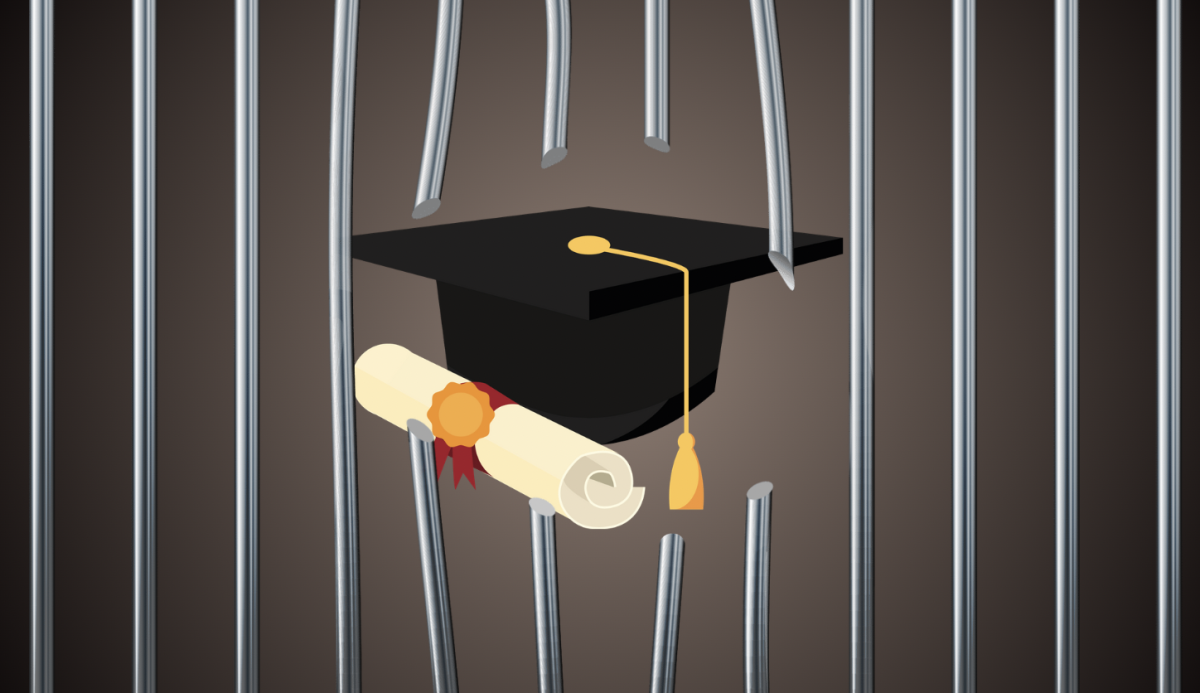In the last 40 years, there has been a 500% increase in men and women being incarcerated at the nationwide level.
The passing of Proposition 36, Proposition 47, and AB 2341, which directly affected California Community Colleges (CCC), are all examples of California taking consistent strides to tackle mass incarceration at the legislative level.
The Rising Scholars program at City College has provided students with support to make the transition from behind bars to the real world a less daunting and difficult experience for nearly fifteen years.
Noel Gomez currently teaches classes for formerly incarcerated and system-impacted students at City College and at the Santa Barbara County jail. Gomez has coordinated the program that offers support for formerly incarcerated students at City College since 2008.
“In 2008, there were only maybe two or three community colleges with programs that acted as a support for formerly incarcerated and system-impaired students,” Gomez said.
Now there are over 80 programs provided by California Community Colleges.
In 2008, a program named “Transitions” was born after a student noticed how others who were like him felt alone and uncomfortable without any form of support after having been released from prison.
“He had the ambition to come to community college and eventually transfer to a four-year University,” Gomez said. “He came to our department and he proposed an idea that would be to develop a program to support formerly incarcerated students.”
Gomez, along with other members of the Transitions program, first began with creating a six-week summer bridge program with incarcerated women and men with the goal of preparing students for community college.
In 2012, the Transitions program gained recognition from the Chancellors’ office at the state level where the program received the Rising Diversity Equity Award. The recognition of the City College’s successful program prompted various other CCCs to create their own campus-wide organizations to help those who were formerly incarcerated.
“In 2019 we changed the name to Rising Scholars and that had a lot to do with the funding that we got from the chancellor’s office to expand the program,” Gomez said.
Since the pandemic, the program has held various events and created a student organization, or on-campus club, that won club of the year for the 2022-2023 academic school year.
“We won that award due to what the students in the [Rising Scholars] organization were doing for the entire academic year,” Gomez said. “One being when we went down to Ventura Balboa Middle School where we spoke to about 250-300 youth who went to an alternative school.”
On April 24, 2023, the program was able to reach out its services to those who are currently still behind bars.
“We had a college fair over at the Santa Barbara County Jail; first college fair where we’ve gotten staff from student services to the table at the actual jail,” Gomez said. “They were bringing out those who were incarcerated so we could talk about their college opportunities once they get released.”
The Rising Scholars Program at City College has provided formerly incarcerated people with support for nearly 15 years and has fostered many successful student stories.
“Alberto Lule was one of our students and he transferred over to UCLA and is currently getting his Master in Fine Arts at UC Irvine,” Gomez said. “He’s doing amazing artwork and he does a lot of exhibits so he actually came back to our campus to do a feature presentation.”
Lule’s story is one of many former members of the Rising Scholars program’s unique paths to educational and occupational success. Looking forward, the program is planning on holding an event at City College within the next few months related to entrepreneurship as a possible career path for those coming out of prison looking to get into business.
“What we’re going to demystify what it’s like being a person who is formerly incarcerated; there’s an assumption that your career choices are limited, especially when it comes to business,” Gomez said.
Honing in on national social justice issues at the local level is one piece of the puzzle to raising more awareness, and sparking more change around solving the problem of mass incarceration. Through the Rising Scholars Program, City College does its part to help ease the transition from imprisonment to educational success.
“When you’re incarcerated for so long it has psychological effects on people,” Gomez said. “I really want to help students get on that path of employment, but also be a part of that social change; to really help change the landscape of mass incarceration.”









